Optimized Multicast Routing Protocol in MANETs with Fuzzy Decision System
Problem Definition
Problem Description: Despite the advancements in multicast routing protocols for MANETs, there still exists a significant issue with optimal route selection and high cost value in data transmission. Current protocols may not efficiently utilize the network resources and may lead to increased energy consumption. Therefore, there is a need to develop an extended decision matrix model that can address these challenges and achieve efficient multi-hop routing in MANETs. The proposed model should focus on improving route selection, reducing cost value, and increasing energy efficiency in data transmission within the network.
Proposed Work
The research project titled "An extended decision Matrix model for achieving efficient multihop routing protocol in MANETs" focuses on improving the efficiency of multicast routing protocols in Mobile Ad Hoc Networks (MANETs). MANETs are characterized by their lack of fixed network infrastructure and the arbitrary distribution of mobile nodes. To address the challenges of data transmission in MANETs, multicast routing protocols have been developed, but they often lack optimal route selection. In this study, a novel multicast routing protocol is proposed that aims to achieve the optimal route and reduce the cost value of the network. This protocol utilizes a fuzzy-based decision system to estimate the cost value and enhances the next hop selection method using the Random Waypoint Mobility Model.
The proposed protocol is simulated using MATLAB to evaluate its performance. This research falls under the categories of Latest Projects, M.Tech | PhD Thesis Research Work, MATLAB-Based Projects, Optimization & Soft Computing Techniques, and Wireless Research-Based Projects, with specific subcategories including Fuzzy Logics, MATLAB Projects Software, Latest Projects, and Routing Protocols Based Projects.
Application Area for Industry
This project can be applied in various industrial sectors such as telecommunications, transportation, defense, and emergency response. In the telecommunications sector, the proposed solution can optimize data transmission in mobile ad hoc networks, leading to improved network efficiency and reduced energy consumption. In the transportation industry, this project can enhance communication between vehicles in a fleet, improving route selection and reducing transmission costs. In the defense sector, the project can support reliable communication and data exchange among military units in dynamic battlefield environments. For emergency response teams, the enhanced multicast routing protocol can facilitate seamless communication and coordination during crisis situations.
The proposed solutions in this project address specific challenges faced by industries, such as suboptimal route selection, high cost value in data transmission, and increased energy consumption. By implementing the extended decision matrix model and utilizing the fuzzy-based decision system, industries can achieve efficient multi-hop routing in mobile ad hoc networks. This will result in improved network performance, reduced operating costs, and enhanced energy efficiency. Overall, the benefits of applying this project's solutions include enhanced communication reliability, better resource utilization, and increased productivity across various industrial domains.
Application Area for Academics
The proposed research project on "An extended decision Matrix model for achieving efficient multihop routing protocol in MANETs" holds great potential for use in research by MTech and PhD students across various technology and research domains. This project addresses the current challenges in multicast routing protocols for Mobile Ad Hoc Networks (MANETs) by focusing on improving route selection, reducing cost value, and increasing energy efficiency in data transmission. MTech and PhD students can utilize the proposed model to explore innovative research methods, conduct simulations, and analyze data for their dissertations, theses, or research papers. They can leverage the fuzzy-based decision system and the Random Waypoint Mobility Model integrated into the protocol to study optimization and soft computing techniques in wireless communication networks. By using MATLAB for simulation, students can evaluate the performance of the proposed protocol and compare it with existing multicast routing protocols.
The code and literature of this project can serve as a valuable resource for students in the field of Fuzzy Logics, MATLAB Projects Software, Latest Projects, and Routing Protocols Based Projects. The future scope of this research project includes further enhancements to the protocol, extension to other network types, and collaboration with industry partners for real-world implementation. Overall, this project provides a unique opportunity for MTech and PhD students to engage in cutting-edge research and contribute to advancements in the field of wireless communication networks.
Keywords
multicast routing protocols, MANETs, multi-hop routing, decision matrix model, optimal route selection, cost value, energy efficiency, data transmission, mobile nodes, fuzzy-based decision system, Random Waypoint Mobility Model, MATLAB simulation, Latest Projects, M.Tech | PhD Thesis Research Work, MATLAB-Based Projects, Optimization & Soft Computing Techniques, Wireless Research-Based Projects, Fuzzy Logics, Routing Protocols Based Projects, network resources, energy consumption.
| Shipping Cost |
|
No reviews found!






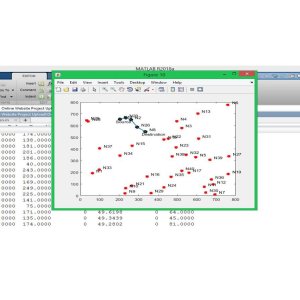
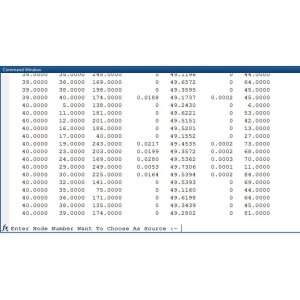











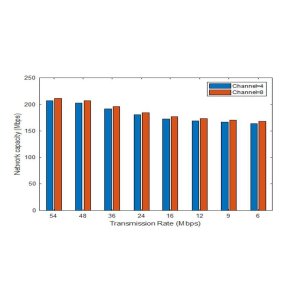
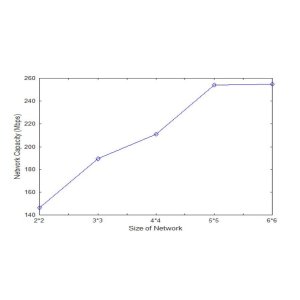


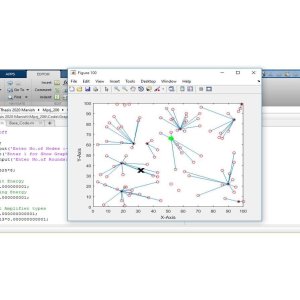
































No comments found for this product. Be the first to comment!